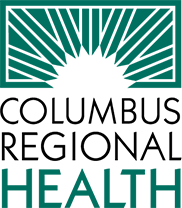What is proper wound care?
Summertime often brings an increase in physical activity, which is great! But those summer activities we cherish, such as outdoor excursions, home improvement projects and grilling can also increase the risk of injury. Injuries are a part of life, and in honor of National Wound Care Week, we explore a broad type of injury that can often be sustained from cuts, rashes, burns, punctures, etc. and potentially made worse by improper care, genetics or underlying health issues.
So let's learn more about wound care and treatment?
A wound is defined as an injury to the body that typically involves laceration or breaking of a membrane (such as the skin) and usually damage to underlying tissue. Thanks to the experts at the Wound Center at Columbus Regional Health below are some common aspects of routine wound care:
- Should I use water or an antiseptic to clean a wound?
Either sterile saline or tap water can be used effectively.
- Should I occlude (cover) my wound?
Evidence suggests that a moist wound bed leads to faster healing, so yes, an occlusive dressing should be used.
- How long can I wait to have sutures placed in my wound?
Current guidelines suggest primary closure of clean wounds occur within the first 6-12 hours, although 18-24 hours may be possible in wounds with good blood supply and no signs of infection. Decisions are made on a case-by-case basis.Of course, if you sustain a deep wound that spurts blood or does not fail to clot within 10 minutes, seek immediate medical attention.
- Does skin glue work as well as sutures?
Your physician or wound specialist will be able to make that call. Typically, tissue adhesives (such as skin glue) work just as well as sutures on wounds with straight edges that are in non-moving body parts.
- Should I get a tetanus shot?
Yes, a tetanus shot is indicated in patients who have never been immunized, haven't finished their immunization course, or who haven't had an immunization in the last 10 years.
- Do I need antibiotics to prevent infection?
In healthy patients with clean wounds, antibiotics to prevent infection are of very little help. Antibiotics are of benefit in human bite wounds, or for certain wounds of the hand and fingers.
- What are the signs of a wound infection?
Signs of infection include redness, especially if it starts spreading, any signs of pus, and increased swelling, tenderness, and warmth around the injury. Fever is a sign of a more serious infection. Puncture wounds can become infected deep inside the wound forming an abscess, especially if there is a foreign object present. There may be few noticeable signs of infection at the puncture site; rather the pain and swelling may feel as if they are deep inside the wound.
As surgical wounds heal, there are changes that occur to the skin, both around and near the wound. It is normal to have a small amount of clear or slightly yellow thin blood tinged drainage the first few days following the procedure, and a small amount of redness at the incision site. However, if green, yellow or cloudy drainage seeps from the wound, this could be a sign of infection. Another warning sign is redness spreading around the incision site into splotches or thready spider web-like patterns beyond the wound. Swollen, tender lymph nodes close to the surgery site is another concerning change.
Most wounds can be managed by your primary care provider as an outpatient. However, some wounds could be referred to a local wound care specialist, such as wounds affecting bones, tendons, joints or nerves; particularly large wounds; wounds to the face; non healing wounds (fail to heal in 3 to 4 weeks); or infected wounds requiring IV antibiotics, exploratory surgery, or incision and drainage. The Wound Center at Columbus Regional Health has specially trained physicians and staff to manage complex wounds, and is equipped to provide advanced treatments such as hyperbaric oxygen therapy.
If you have questions, or would like to schedule a consultation with one of our physicians, call the Wound Center at (812) 376-5373.

CRH News
-
CRH recognized for excellence in lactation care
Jun 24, 2024, 15:26 by DeClue, A.In addition, the facility demonstrated that it has recently completed activities that help protect, promote, and support breastfeeding.Full story -
Take the ColumBUS Transit Survey
Jun 20, 2024, 08:33 by Newton, A.ColumBUS Transit is conducting a Route Study to look for opportunities to improve the service. Your input will help guide priorities and inform decisions about the future of public transit in our community.Full story -
Orthopedics and Sports Medicine practice moves to NexusPark
Jun 19, 2024, 14:24 by DeClue, A.CRH Orthopedics and Sports Medicine will open at NexusPark on July 1.Full story -
Memorial Day Holiday Physician Office Hours
May 22, 2024, 11:49 by DeClue, A.In observance of the Memorial Day holiday, most Columbus Regional Health Physicians offices and outpatient clinics will be closed on Monday, May 27, 2024.Full story -
Guardian Response Trains with CRH on Patient Transport
Apr 26, 2024, 15:25 by DeClue, A.On April 29 and May 2, Columbus Regional Health and area first responders will be conducting a training session in partnership with military representatives. This is a planned, simulated emergency drill.Full story -
Final Two CRH Practices Move to NexusPark
Apr 18, 2024, 12:36 by DeClue, A.CRH at NexusPark officially opened in late January, and more than 15 provider practices and services have relocated to the space in the first quarter of 2024.Full story

